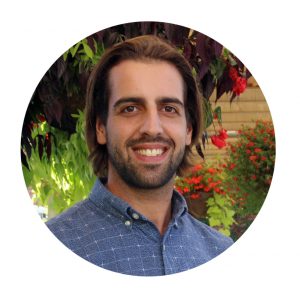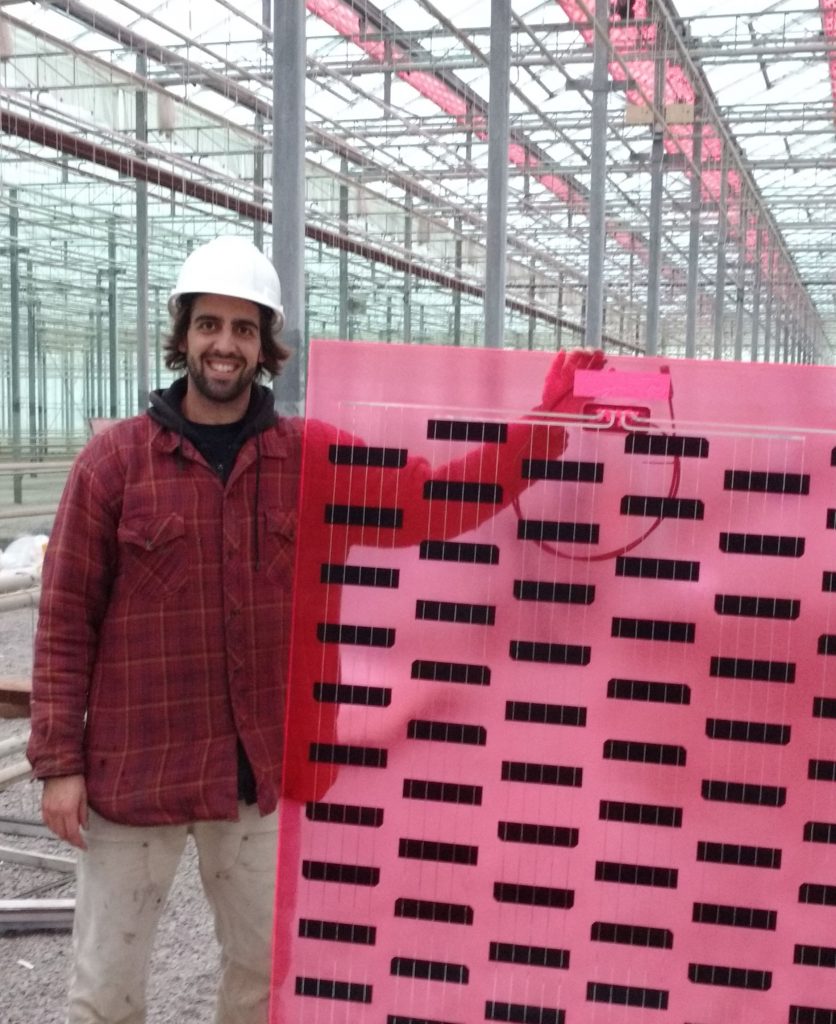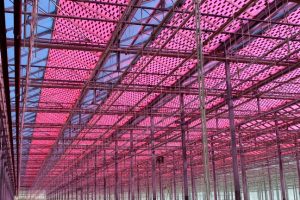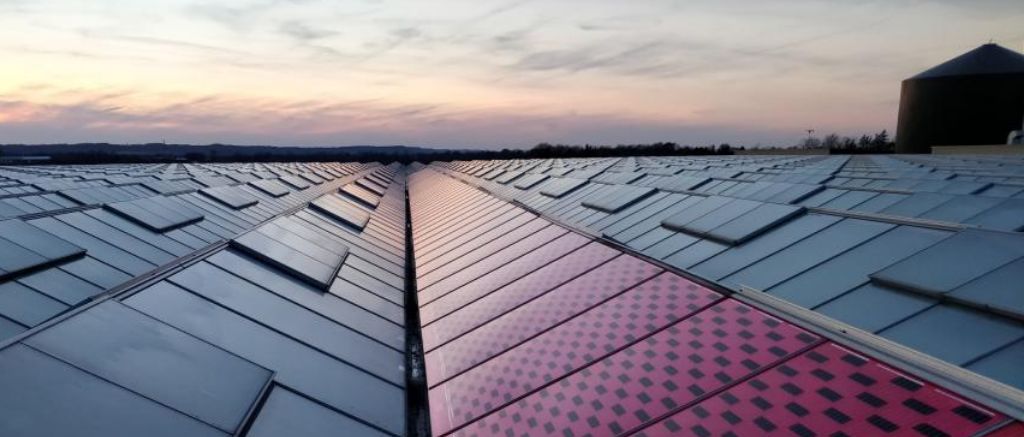
Author: Andrew Cahill, Youth Programs Coordinator
In November 2018, I traveled to the Niagara region in Ontario to work on a unique project with a solar energy company. Before I joined Relay, I was employed as a solar installer and worked on solar arrays around the province. I was able to use these skills to gain experience working on this project using new solar technology, that was being installed on a greenhouse, owned by Freeman Herbs.

The project is special for many reasons and is the first to use the new technology in Ontario. The custom-made solar technology offers two key benefits. It allows for faster plant growth and provides a source of electricity which offsets some of the power used within the greenhouse.
Working with the solar company’s crew I helped build the project by replacing glass sections of the greenhouse roof with the custom solar panels. The solar panels contain approximately 25% of the silicon cells that a standard panel would, and the rest is made of a translucent, coloured glass which allows filtered light to enter the greenhouse.
What’s special about the panels is they use a quantum conversion process which changes green light to red light. Plant growth is stimulated more by red light than by any other colour on the visible light spectrum. So, the amplified red light leads to faster plant growth and higher yield.
Marco de Leonardis is the Head Organic Grower at Freeman Herbs. Marco states, “renewable energy is very important.”
It is common practice for greenhouses to use artificial lighting to increase plant production. These lighting systems use a lot of electricity, which is one of the reasons Freeman Herbs is building this solar project.
Marco reflected, “if we can reduce the impact on the environment…by producing electricity using solar energy, then we are moving in the right direction of sustainable farming.”
Background/technical info on the project: the specialty PV solar modules were manufactured by Heliene. Ecohive was in charge of engineering and construction for the project, and Soliculture is the inventor of the quantum conversion process used in the modules. Financial support for the project came from the Ontario Agricultural Adaptation Council.


